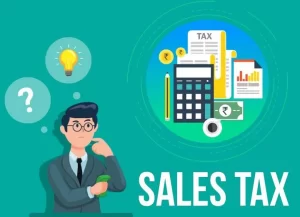Is a Tax Good Or Bad?

Whether a tax is good or bad depends on the perspective of the person making the comparison. Many people hold a negative view of taxation, but Democrats are more likely to say that wealthy corporations and the wealthy are not paying their fair share. On the other hand, Republicans argue that the tax system is too complex and that some poor people are not paying their fair share. Despite this conflicting viewpoint, taxes are generally a necessary evil.
Moreover, businesses need a stable society to flourish. Therefore, they pay taxes on the products and services they produce, the people they employ, the property they own, and even on the income they generate. As a result, the tax system must be designed to encourage investment and growth in a sustainable way, through consultation with all stakeholders. As Oliver Wendell Holmes, Jr. once said, “Taxes are the price we pay for civilized society.” And while the optimal size of a state is debatable, it is a requirement for governments to generate revenue from business.
In terms of economics, taxes affect both demand and supply. Lowering marginal tax rates for individuals encourages people to work more, while expanding the earned income tax credit attracts low-skilled workers. On the other hand, lowering the tax rates on business income encourages companies to invest domestically and create jobs for low-skilled workers. And tax breaks for research can encourage innovation and development. This, in turn, will encourage the creation of new products.
Corporation tax is perhaps the most distorting tax in the economy. Some people argue that it should be kept at a minimum and abolished, while others believe that international corporations are not paying their “fair share”. The truth lies somewhere in the middle. However, it is a necessary evil to keep the economy running smoothly. It affects a wide variety of products and services. A carbon tax, for example, raises the cost of gasoline and reduces productivity.
However, this argument is flawed. While the taxation of wealth is the least damaging form of raising revenue, it has been shown to exacerbate inequality. The reason for this is that extreme wealth disparity skews the economic growth and rigs the political system. The U.S. is facing an unprecedented budget deficit. The federal government’s debt-to-GDP ratio will eventually exceed 100%. The income tax alone will raise only a fraction of the amount that is needed.
It should be remembered that there is no silver bullet to combat global warming. Carbon pricing is neither the silver bullet nor an historic triumph. The real solution is to reduce carbon emissions, and the revenue from the tax should be used to implement additional measures to cut carbon. The BC carbon tax is an example of such a policy, and it may even be the best option in the long run. This is an important distinction, as the economic arguments may be completely different in the real world.
On the other hand, worker taxation is a different story. The burden of taxation falls on the worker on both ends. The employer can push the burden of tax increases onto the worker through wage cuts or layoffs. Even low-wage workers pay income tax, and this contributes to the total revenue of the government. By doing so, these taxes help finance government purchases and services. Therefore, these tax cuts are bad for both employers and workers.



